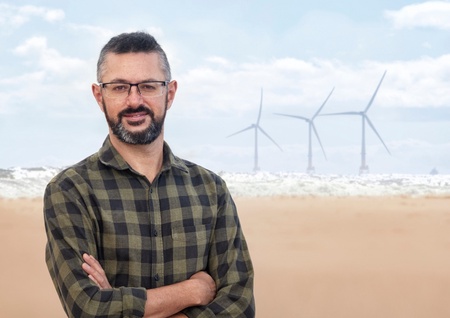Researchers at the University of Aberdeen's Just Transition Lab and their local partners have been awarded £386,152 by the Scottish Government for a project that will see several local climate assemblies take place in the north-east of Scotland.
The project – North East Community Climate Assembly Pilots – is led by the NESCAN Hub with key partners including the University, Aberdeen for a Fairer World, and tsiMoray. The funding from the Scottish Government’s Just Transition Fund will support researchers to participate in a series of climate assemblies in the north-east of Scotland, giving local people a say in how a just energy transition can be achieved for communities in the region.
The initial aim of the project is to learn lessons from community-led climate discussions and assemblies that have taken place in the UK and beyond, to understand how action taking place elsewhere could be used in planning and policy initiatives in across local authorities.
Involving an interdisciplinary team of scientists from the University’s Just Transition Lab, the project aims to ensure that the region is a leader in community engagement as it relates to the energy transition.
Professor Tavis Potts, from the University’s School of Geosciences, will work alongside Dr Daria Shapovalova from the School of Law and Dr John Bone from the Department of Sociology as part of the project.
Professor Potts explained that the project will be divided into three stages: “Initially we will examine how community climate assemblies work in different parts of the world and how they engage with communities, including those that are underrepresented and not usually involved in climate actions.
“From there we will bring what we’ve learned to several local climate assemblies, directly engaging with community stakeholders to ensure that local voices are engaged in the just transition.
“Using the lessons learned from these assemblies, the University will host a multi-stakeholder event that draws all of our activity together and connects it to local policy, planning, civil society and business, in a way that creates practical action.”
Professor Potts added: “Ultimately, this project aims to examine how climate assemblies can influence decision making in the region as part of a just transition that protects our communities and is fair, inclusive and democratic. In the journey to Net Zero, it is vital that the benefits and opportunities are shared across society, and that those who have the least ability to pay or adapt are not negatively impacted.”


